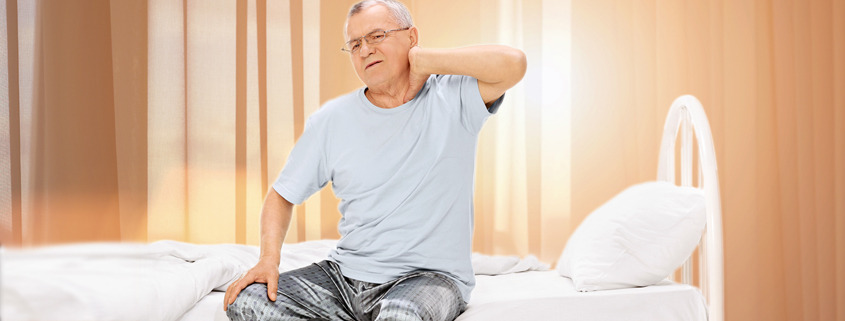Managing Morning Stiffness
Do you often wake up feeling stiff and sore in the morning? Do you have trouble getting out of bed or walking into the kitchen to get your breakfast? This is commonly known as morning stiffness that is caused by worn joints, muscle tightness, or arthritis. We feel this tightness in our bodies more frequently in the morning due to the hours of inactivity while sleeping. The area of stiffness varies by person, but most say in the morning is when it feels the worst. Research shows pain will subside about an hour after waking or soon after moving.
To help ease morning stiffness, keep these tips in mind…
- Medication: Keep pain-relieving or anti-inflammatory medications by your bedside and take them 30 minutes prior to getting up.
- Arm & Leg Circles: Moving arms and legs gently in a circular motion while lying in bed can help relax muscles and get the blood circulating.
- Stretching: While still lying in bed, incorporate stretches that target the stiffest areas of your body including the back, hips, knees, and shoulders.
- Heat: Before or after stretching apply a heating pad or take a hot bath to help loosen tight muscles and make it easier to get moving.
- Joint Cream: Putting joint cream on specific areas of tightness can provide short-term relief and make it easier to move and stretch.
- Herbs and Supplements: Herbal treatments like fish oil, evening primrose, borage, or black currant oils may ease joint stiffness and inflammation from arthritis.
If morning stiffness affects your ability to safely get out of bed or is keeping you from enjoying activities, talk with your doctor about the benefits of physical and occupational therapy.
How Can Physical & Occupational Therapy Help?
After a thorough evaluation, therapy may recommend different sleep positions and exercises to improve flexibility, strength, and range of motion. Additional specialized treatments may include hot and cold therapy, therapeutic massage, and the use of pain-reducing technology such as electrical stimulation and ultrasound therapy.




Leave a Reply
Want to join the discussion?Feel free to contribute!